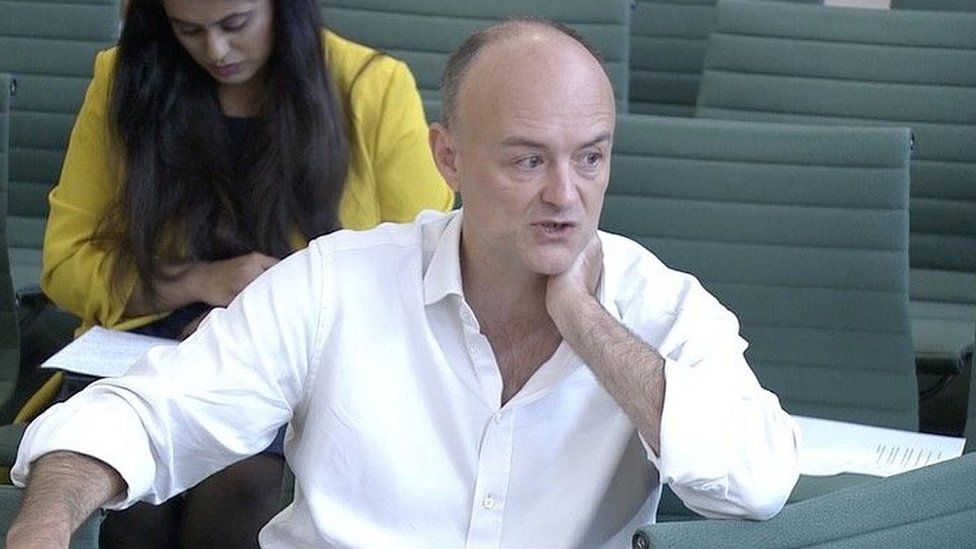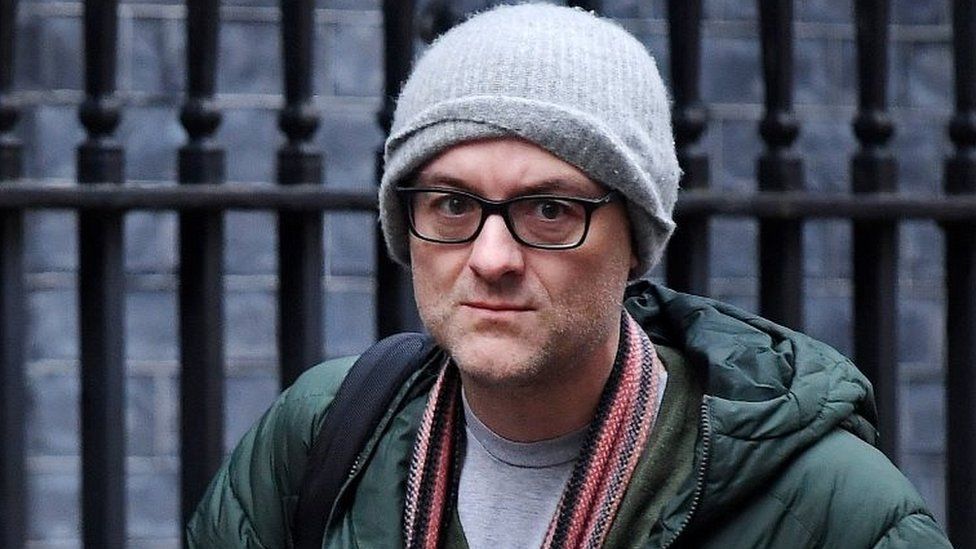BBC News 20 July 2021 - by Laura Kuenssberg
Everyone knows Dominic Cummings's name, and usually not for flattering reasons.
Having covered politics for nearly 20 years, it is at the heart of my job to get to know senior figures in all the political parties, and advisers in government and in opposition.
It's no secret that he has fallen out with Boris Johnson in spectacular style. It's hard to think of a bust-up and betrayal that's been as vicious and sustained.
Mr Cummings has written thousands of words about what he sees as Mr Johnson's flaws already.
He gave seven hours of brutally unrelenting evidence to MPs about the many things that he believes went wrong during the government's handling of the pandemic.
The former aide is an important witness to recent history but has his own agenda, and has been accused of trying to rewrite that history to give himself a more flattering role.
Mr Cummings has never before though agreed to sit down and account for his own role in the pandemic, and also be questioned about his own efforts helping Mr Johnson in office, securing a Brexit deal and a huge election victory, or his time as boss of the Vote Leave campaign.
Indeed, the first time that he promised he would do an interview, one day, was after the referendum in 2016, when we asked if he would answer questions about how he ran that campaign, how it behaved, and how it won.
In the five years that followed so much has happened that has changed the UK.
Cummings's detractors would say he is responsible for much of the political trauma. He became a household name because of the public outrage at his journey out of lockdown.
No-one was closer to the prime minister in government for more than a year.
Aside from Mr Johnson himself, perhaps no one else's decisions and judgements counted as much over a crucial period.
Arguably, no one other political campaigner's view of the world made such a difference to the country in recent times.
And certainly, no one other political adviser has inspired such venom, attracted such conspiracy theories, and launched thousands of memes.
There are many people in the Conservative Party who believe his credibility is shot because of how he has explicitly tried to attack Mr Johnson in recent months.
MPs have already expressed frustration that, in their view, he hasn't provided overwhelming evidence of the explosive claims he's already made.
Given his own reputation for provocation and playing with reality as a campaigner, it's not unreasonable to wonder if he can be believed now.
His arguments at times can seem contradictory, even though it feels like he has clear scripts in his head that he wants to follow.
Mr Cummings styles himself as someone who only wants to do what he thinks is the right thing, whatever it takes, and doesn't care very much what anyone else thinks.
Despite his normal sartorial choices - crumpled shirts, beanie hats and tracksuit bottoms while in No 10 - he cared enough when we sat down this month to wear a new shirt for our interview, fresh with creases from the packet.
He arrived wearing a baseball cap along with his face mask, to avoid being spotted, and pages of scrawled notes in preparation.
And rather than slink off into infamy, five years after he first said he would talk, we sat down and spoke for hours with the cameras rolling.
The interview might make you want to throw rocks at the TV. He might provoke you, in the way that winding his opponents up became his political trademark. His picture of what went on in Downing Street might alarm you too.
But his claims are very much his version of events.
They might help you understand more, for better or worse, what has really gone in in the last few years and what his extraordinary fallout with Mr Johnson was really about.
Whatever you think of Dominic Cummings, when big things happened, he was in the room.


